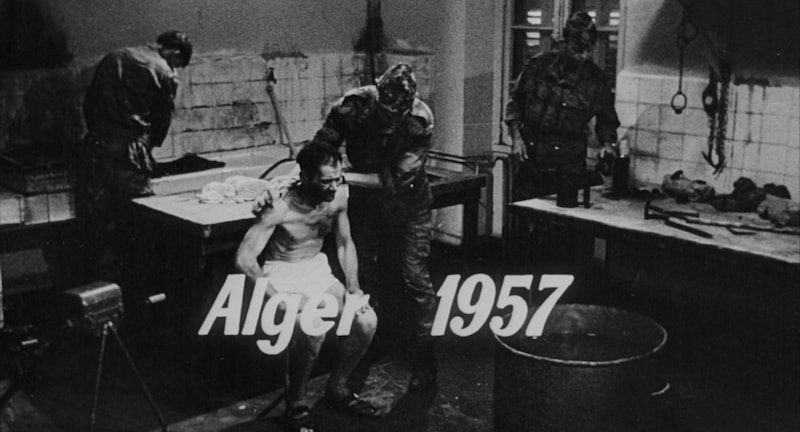Welcome to The Queue — your daily distraction of curated video content sourced from across the web. Today, we’re watching a video essay that looks at the chronological interplay in the 1966 film The Battle of Algiers.
Released in August at the Venice Film Festival — at which it won the Golden Lion — The Battle of Algiers is one of the greatest political films ever made. Largely inspired by Saadi Yacef’s 1962 film Souvenirs de la Bataille D’Alger, Gillo Pontecorvo’s 1966 film dramatizes the brutal, dramatic, and often difficult-to-watch key events that took place between 1956 and 1957 within the broader fight for Algerian independence from French colonial rule. Adopting a documentary format, made all the more visceral by shooting on-location where the wounds of French rule were still fresh, the film details numerous aggressions from both sides of the conflict: horrifying bombs, inhumane torture, and mass civilian casualties.
It is, like all of the best war films, firmly anti-war, with a central argument that armed conflict is a toxin that harms and mutilates everyone who participates in it, or has the misfortune of being in the warpath. It is a film of astonishing relevance, And its confrontational candor has lost none of its power in the intervening years since its release (what, after all, could be more confrontational than children shooting soldiers at point-blank range?).
As the video essay below notes, one of the key muscles The Battle of Algiers relies on is its constant sense of time and temporality. There are prologues, flashbacks, and codas: incessant reminders of both historical time, mundanity, acceleration, and literal ticking clocks, set to light literal fuses. Wordless and frantic, the video essay does an excellent job conveying not only where this theme plays out in Pontecorvo’s film but how it feels.
Watch “Occupying Time: The Battle of Algiers”:
Who made this?
This video essay on how temporalities play out in The Battle of Algiers is by OuScholPo, a Denmark-based artistic-academic partnership between Marie Hallager Andersen and Alan O’Leary. This essay is by O’Leary and was published in [in]Transition: Journal of Videographic Film & Moving Image Studies, 6:3 2019. You can check out OuScholPo’s Vimeo account here.
More videos like this
- Here’s Alan O’Leary presenting his book on The Battle of Algiers, which you should totally check out if you’re a fan of the film, the above video essay, or both!
- Christopher Nolan is a director famously obsessed with temporalities and storytelling that incorporates and fixates on time. Here’s StudioBinder with a video essay on how this dominant motif plays out in the director’s work.
- And finally, here’s the always eloquent Nerdwriter1 with a more personal look at how Soviet director Andrei Tarkovsky’s concept of time became more meaningful in the wake of the COVID-19 pandemic.

